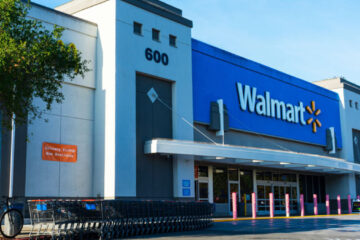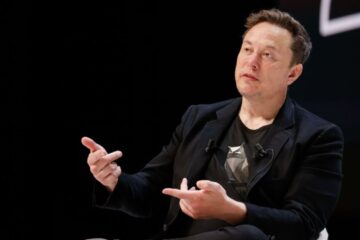The legendary financier reiterates his warnings of a market collapse on the way.
Tension has become the new watchword in the markets.
For several days, investors appear to be exhausted. They seem ready to panic at the slightest bad news.
Everything gives the impression that all it takes is a spark to ignite everything.
The reason for this fragility and vulnerability is the fear that the U.S. economy and the world economy will fall into recession due to actions by central banks and governments to quell inflation at multi-decade highs in many Western countries.
The Federal Reserve promised to continue raising interest rates after a jumbo hike of 75 basis points or 0.75% at the end of its monetary meeting on 22 September. The Fed funds rate is in a range of 3%-3.25%, and is expected to increase to 4.5% by the end of 2022.
For many economists, including Wharton professor Jeremy Siegel, this policy is a monumental mistake.
“I am very upset. It’s like a pendulum. They were way too easy through 2020 and 2021, and now ‘we’re going to be real tough guys until we crush the economy.’ I mean, that is just to me absolutely, poor monetary policy would be an understatement,” Siegel lambasted last month.
Bottom Is ‘Currently at 2007 Levels’
The signals sent by so-called growth companies, like big tech, have finally cemented the idea that the health of the economy continues to deteriorate.
Meta Platforms (META) – Get Meta Platforms Inc. Report, the giant of social networks, has just frozen hiring, a first since its creation in 2004. The company should reduce its workforce and the budgets allocated to its teams. Alphabet (GOOGL) – Get Alphabet Inc. Report, Google’s parent company, will also embark on an austerity cure.
“I had hoped the economy would have more clearly stabilized by now,” Meta’s CEO Mark Zuckerberg told employees on September 29. “But from what we’re seeing, it doesn’t yet seem like it has, so we want to plan somewhat conservatively.”
Wall Street has just had one of its worst weeks in a long time.
At the end of the stock market session on Friday, September 30, which also marked the end of the third quarter for a large majority of companies, the Dow Jones Industrial Average closed below 29,000 for the first time since November 2020.
September was a carnage for the three main New York indices. In September alone, the Dow Jones lost 8.8%, the S&P 500 fell 9.3%, while the Nasdaq dropped 10.5%.
Things will continue to deteriorate and will even go from bad to worse, has just warned legendary investor Michael Burry. The financier, who became famous for having bet on the collapse of the real estate market at the origin of the financial crisis of 2008, believes that many signals currently point to a much more dire situation.
“13.48% of stocks closed above their 200-day moving average yesterday,” Burry, who runs hedge fund Scion Asset Management, said on Twitter on October 1. “Bottom in 2009 was 1.2%. Bottom in 2020 was 2.8%. Currently at 2007 levels.”
‘All the Silliness Must Go’
He then deleted his tweet as he often does.
The day before, Burry had already pointed out another red flag.
“This morning there were still 218 primary stock listings in the United States with a market cap over $1 billion and EBITDA less than NEGATIVE $100 million,” he posted on Twitter. “29 of them had market caps over $10 billion, totaling $655 billion.”
He added that: ” Saying it again. ALL the silliness must go.”
Basically, Burry thinks that there are a lot of companies with inflated valuations. He believes that the performance of these firms does not justify their stock market valuation because they are losing a lot of money. Therefore, a violent correction is to be expected.
He did not give a list or names of those 218 companies he appears to have identified.
EBITDA refers to earnings before interest, taxes, depreciation, and amortization. It’s a most watched gauge by investors because it gives an idea of a company’s financial health and its ability to generate cash.
This isn’t the first time Burry has predicted a market crash. In August, he said the stock market crash was more a matter of when, not whether.


